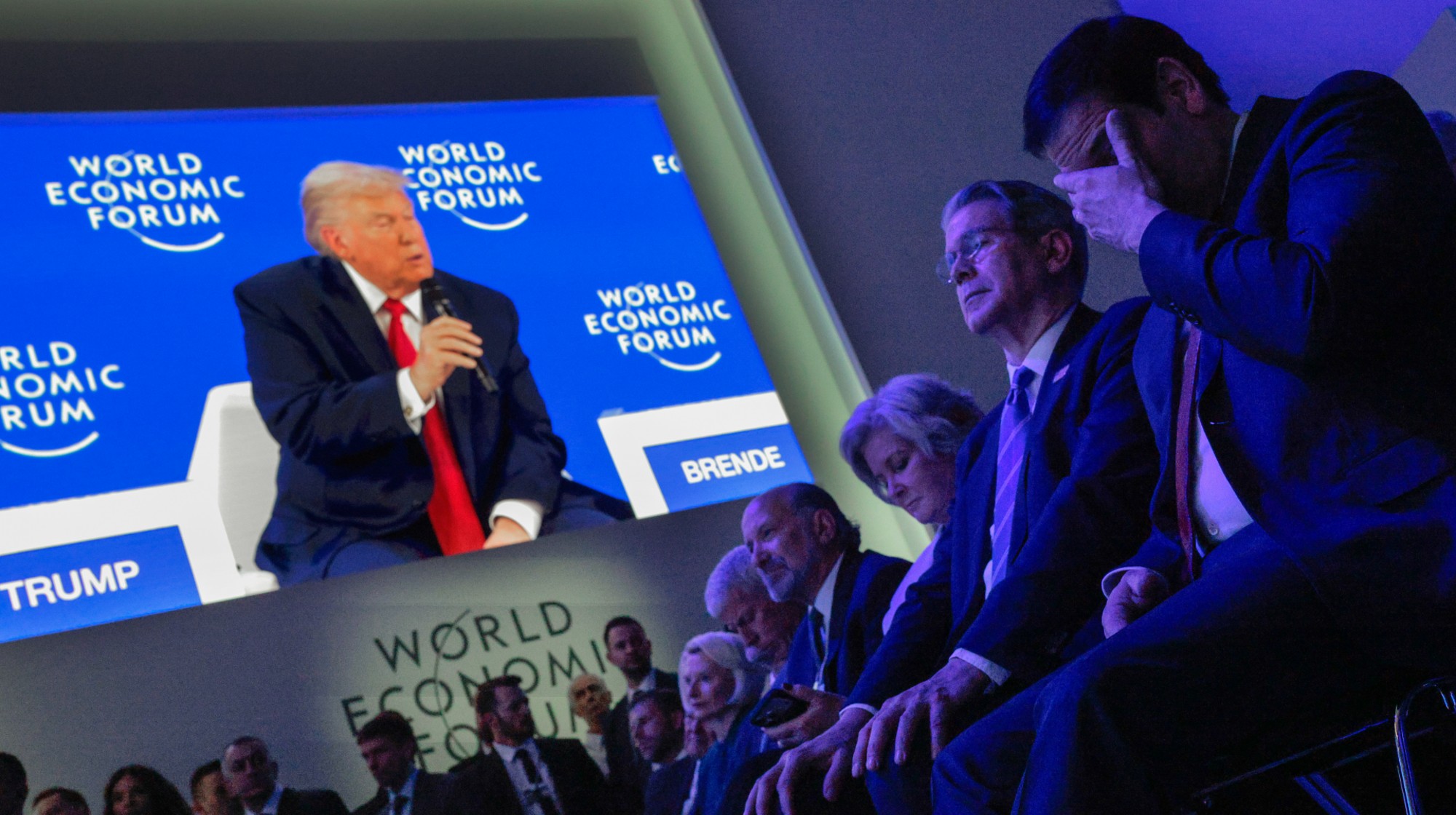Why Israel is attacking Iran now
A weakened Tehran and a distracted Donald Trump have led Benjamin Netanyahu to finally act against long-standing foe

Israel has for decades vocally identified Iran's nuclear ambitions as the greatest threat to the existence of the Jewish state. And for their part, since the creation of the Islamic Republic in the late 1970s, Iran's rulers have repeatedly pledged to destroy Israel.
After nearly half a century of tensions, last night's Israeli air strikes on Iran have left the two nations teetering on the brink of all-out war. So why has Israel chosen this moment to attack its historical nemesis?
Netanyahu's long march
The attacks have been a long time coming. Benjamin Netanyahu "has built a career on the popular fears of Iran's nuclear programme and ambitions", said The New Arab in 2015.
The Week
Escape your echo chamber. Get the facts behind the news, plus analysis from multiple perspectives.

Sign up for The Week's Free Newsletters
From our morning news briefing to a weekly Good News Newsletter, get the best of The Week delivered directly to your inbox.
From our morning news briefing to a weekly Good News Newsletter, get the best of The Week delivered directly to your inbox.
As a parliamentarian in 1992, Netanyahu warned the Knesset that Iran could reach nuclear weapons capability in "three to five years". Three years later, he repeated the claim that Iran would have a nuclear weapon in "three to five years".
In 2009, a US State Department diplomatic cable released by Wikileaks revealed that Netanyahu was telling Washington that Iran was "probably one or two years away" from developing functioning nuclear weapons. In 2012 he told the United Nations General Assembly that Iran was just one year away from having a nuclear bomb.
Speaking to The Atlantic in 2010, Netanyahu "framed the Iranian [nuclear] programme as a threat not only to Israel but to all of Western civilisation", telling the magazine: "You don't want a messianic apocalyptic cult controlling atomic bombs."
Iran's weakness
Previously, Israel had feared that Hamas and Hezbollah, militant proxies for the Iranian regime with a large ground presence in Gaza and Lebanon, would form part of any military response to an Israeli attack on Iran's nuclear facilities.
A free daily email with the biggest news stories of the day – and the best features from TheWeek.com
That picture has changed since the 7 October attacks; Iran has been "weakened" by the war in Gaza and by violence in Lebanon where the once-powerful militias have been "decimated", said The New York Times. The fall of the Assad regime in Syria, also an ally of Tehran, has further reduced the reach of what Netanyahu has called the Iranian "octopus".
Israeli strikes against Iran's air defences last October "weakened their capabilities, allowing Israeli fighter jets to more safely launch a new mass attack".
Iran's nuclear violations
The new attack came 24 hours after the International Atomic Energy Agency said Iran was in breach of its non-proliferation obligations for the first time in almost 20 years because of its refusal to disclose information about its nuclear plans.
Tehran responded by announcing it would ramp up its nuclear activities, warning it had "no option but to respond". Netanyahu claimed an intelligence assessment had found that Iran would be able to produce nuclear weapons "within months if not weeks", said Amin Saikal on The Conversation. Talks between the US and Iran aimed at limiting the latter's nuclear capability have been "inconclusive", which has only reinforced Netanyahu's conviction that military action is "the best option to halt Iran's nuclear programme".
Trump distracted
Just this week, Trump warned Netanyahu not to do anything that could undermine his administration's nuclear talks with Iran. The US president was "keen to secure a deal to boost his self-declared reputation as a peace broker", said Saikal.
But Trump is distracted by the unrest in Los Angeles and the ongoing impact of his tariff war, as well as the stalled efforts to secure peace in Ukraine. So "Netanyahu felt that now was the time" to strike, "even if the Americans don't like it", said the BBC.
The "unilateral" strikes have indicated a "collapse" of Trump's efforts to restrain Netanyahu, said The Guardian. The part the White House plays now could significantly influence what comes next, in the region and potentially far beyond.
Chas Newkey-Burden has been part of The Week Digital team for more than a decade and a journalist for 25 years, starting out on the irreverent football weekly 90 Minutes, before moving to lifestyle magazines Loaded and Attitude. He was a columnist for The Big Issue and landed a world exclusive with David Beckham that became the weekly magazine’s bestselling issue. He now writes regularly for The Guardian, The Telegraph, The Independent, Metro, FourFourTwo and the i new site. He is also the author of a number of non-fiction books.
-
 Syria’s Kurds: abandoned by their US ally
Syria’s Kurds: abandoned by their US allyTalking Point Ahmed al-Sharaa’s lightning offensive against Syrian Kurdistan belies his promise to respect the country’s ethnic minorities
-
 The ‘mad king’: has Trump finally lost it?
The ‘mad king’: has Trump finally lost it?Talking Point Rambling speeches, wind turbine obsession, and an ‘unhinged’ letter to Norway’s prime minister have caused concern whether the rest of his term is ‘sustainable’
-
 5 highly hypocritical cartoons about the Second Amendment
5 highly hypocritical cartoons about the Second AmendmentCartoons Artists take on Kyle Rittenhouse, the blame game, and more
-
 Israel retrieves final hostage’s body from Gaza
Israel retrieves final hostage’s body from GazaSpeed Read The 24-year-old police officer was killed during the initial Hamas attack
-
 Ukraine, US and Russia: do rare trilateral talks mean peace is possible?
Ukraine, US and Russia: do rare trilateral talks mean peace is possible?Rush to meet signals potential agreement but scepticism of Russian motives remain
-
 Trump backs off Greenland threats, declares ‘deal’
Trump backs off Greenland threats, declares ‘deal’Speed Read Trump and NATO have ‘formed the framework for a future deal,’ the president claimed
-
 Iran unleashes carnage on its own people
Iran unleashes carnage on its own peopleFeature Demonstrations began in late December as an economic protest
-
 How oil tankers have been weaponised
How oil tankers have been weaponisedThe Explainer The seizure of a Russian tanker in the Atlantic last week has drawn attention to the country’s clandestine shipping network
-
 Iran in flames: will the regime be toppled?
Iran in flames: will the regime be toppled?In Depth The moral case for removing the ayatollahs is clear, but what a post-regime Iran would look like is anything but
-
 Europe moves troops to Greenland as Trump fixates
Europe moves troops to Greenland as Trump fixatesSpeed Read Foreign ministers of Greenland and Denmark met at the White House yesterday
-
 Why Greenland’s natural resources are nearly impossible to mine
Why Greenland’s natural resources are nearly impossible to mineThe Explainer The country’s natural landscape makes the task extremely difficult